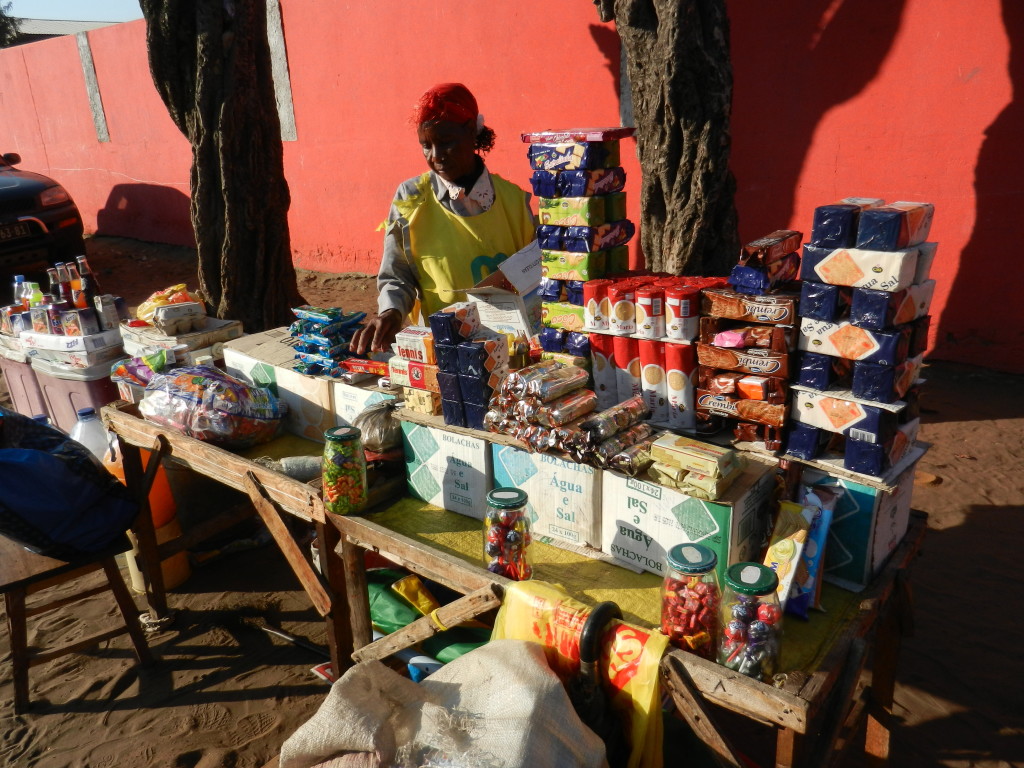Does increasing urbanization suggest we need a new understanding of food and nutrition security for populations flocking to cities? Does it require new investigatory approaches from researchers and methods for practitioners? Tracking ‘the urban’ at the 2nd International Conference on Global Food Security last week, we noted widespread acknowledgement of the importance of rapid urbanization across research presentations and posters. However, the number of presentations specifically delving into these noted urban issues remained relatively few.
By 2050, the UN projects an added 2.5 billion people to the world’s urban population, with nearly 90 percent of the increase concentrated in Asia and Africa. While urbanization has long been associated with economic development and income growth in affluent countries, the coming urban expansion in low-income regions presents novel challenges to human health, environment, and economy. The field of urban food security investigates interwoven factors that reshape eating and producing food in cities: changing food availability and diet composition, new nutrition requirements for more sedentary lifestyles, higher expenses for food purchases due to imports and transportation costs, and emerging labor patterns for women, among other factors.
Changing Food Demand
For Corinna Hawkes, a specialist on food systems policies, growing urbanization justifies greater attention to sustainable consumption across global food systems. In her plenary address, Hawkes argued that food systems currently do not produce optimal foods for nutrition and health objectives because the food industry encourages excessive consumption of foods with low nutrient value. Regulatory frameworks fail to provide disincentives to overconsumption, while ‘food systems literacy’ is insufficient. Knowing that the dissemination of ‘information’ does not typically transform individual food habits, Hawkes put the spotlight on policy that supports nutrition and health.
Urban Production Potential
Researchers at the conference demonstrated how urban populations are not only consumers of food but also potential producers. Several presenters focused on the livelihood, food security, and nutritional potential of urban agriculture. Urban households, particularly in sub-Saharan Africa, rely on combinations of livelihood activities, but the interactions between rural and urban jobs are not widely studied. Hayford Mensah Ayerakwa and colleagues from Lund University presented research suggesting that households involved in both urban and rural agriculture are relatively more food secure than households doing either urban or rural agriculture.
Additionally, home gardens were raised as a strategy to enhance nutrition adequacy for urban households. A poster from Wilna Oldewage-Theron of Texas Tech University and Abdulkadir Egal of Vaal University of Technology, South Africa showcased a study in peri-urban Qwa Qwa, Free State province, showing how integrated food and nutrition interventions, including nutrition education, soy and vegetable gardening, and food preparation skill training, positively influences overall dietary diversity of women.
The role of street vendors was also central to urban food discussions. Kirit Patel of the University of Winnipeg and colleagues contend that state-led food security programs in India provide little opportunity for the participation of the urban poor beyond passive receipt of subsidized grains. Current policy reforms continue to ignore the potential role of the urban informal sector, particularly those retailers provisioning ready-to-eat street food, and hailing primarily from shantytowns. Street food can improve access to nutritious goods as well as generate employment.
Yet there was little coverage at the conference on other informal activities relevant to urban food production, such as input marketing and distribution, strengthening physical and market infrastructure, variation in urban land tenure, improving the financial sector, and supporting the development of agro-processing industries. Understanding how to link consumer demand with farmers’ production and vendors’ provisions, and how to market nutritious foods to urban consumers, is also important. Furthermore, urban provisioning may not always align with higher food quality and efficient use of resources. These questions require a more integrated view of urban food systems by actors and researchers alike.

Measuring Urban Food Insecurity
Conference presenters implied linkages between urban food security and social protection, but it was not a focus of study. Doctoral research presented by Diana Caley of New York University explored the validity of food security measures in urban zones, as the numeric basis for policy-making. According to this research, new indicators for measuring urban experiences of food insecurity may not be necessary, but greater understanding of how urban environments affect responses to existing instruments is key. Additionally, a more qualitative focus can be applied to gauging local perceptions of ‘healthy’ and/or ‘nutritious’ foods, changing taste, and utilization of food to help fill in gaps regarding what urban populations actually eat within households. Different metrics can also be validated on the same urban populations to show their degree of correspondence.

